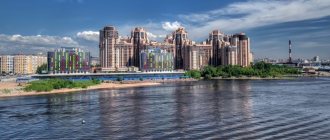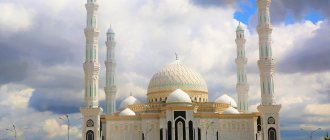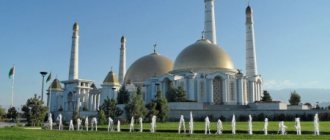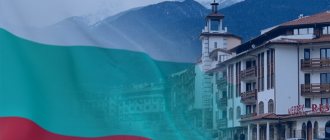I want to go to the village, where to start?
Like any new business, moving to the village is better to start with planning. Only by carefully weighing everything can you avoid many mistakes. Create your own personal escape strategy from the city to the countryside.
- First of all, if you are a family man, you need to discuss your thoughts with your household. It is very important that the desire to leave for the village and start a new life is mutual.
- It is worth deciding on the goals of the move. Decide for yourself what you are willing to put up with and what is unacceptable to you. This will be the starting point for building a plan.
- Now you need to think about what you will live on. You should not console yourself with thoughts that you will come to the village, buy a good house for pennies, plant a vegetable garden, get a cow and, selling the surplus products produced, will live happily ever after. Chances are you don't have any farming experience yet. This is not higher mathematics, but it also has its own wisdom, which, unfortunately, can only be learned through experience. Over time, experience will definitely appear, but the first most difficult years after moving, you need to live on something.
- Your strategy for moving to the village for permanent residence should include answers to all everyday questions. How will children receive education? Where can I get the medical care I need? How will we get to the district or regional center? Is there internet in the village? How will we heat our home? These questions can be listed endlessly, but the more correct answers you have, the smoother the move from city to village will be.
Village life is characterized by greater freedom, which usually attracts modern people to the countryside. But you need to understand that greater freedom requires greater responsibility. Once you move to the village, you will quickly understand that you need to solve problems on your own. If in the city, in a multi-story building, the roof is leaking, you call the utility services. In the village, you go to repair the roof yourself (or look for a specialist). If your earnings are seasonal, you draw up a financial plan for the whole year so as not to live according to the principle that it’s thick and sometimes empty. No one will distribute your seasonal profits into equal salaries for you.
Do not believe those who write that with your garden, two chickens and a goat you will provide yourself with free food. If you have a farm, this will be a good addition to your table with quality food. But this is not a free pleasure. Vegetable gardens need to be plowed (buy equipment or hire), buy seeds, and animals too. Animals need to build premises, they need to be fully fed, and sometimes resort to veterinary medications. It is a myth that you can provide yourself 100% with food without money or a store. In the 21st century you rarely meet a person who is able to grow wheat, thresh it, make flour or grow sunflowers and make oil.
Which village is better to move to?
To understand where to go and live in the countryside, you need to create some image of your “ideal place of residence.” What must be there, and what are you willing to sacrifice. After this stage, it is worth starting to collect information. You can watch videos on Youtube, read reviews on social networks about moving from city to village, and those who successfully moved to the countryside. Often new rural residents in their blogs willingly share stories about moving to the village for permanent residence from the city.
We offer the following criteria for choosing a new place of residence.
Climate
It is no coincidence that this criterion comes first. You must be sure that the climate is suitable for you and your family. There are people who easily move even to the most exotic corners of the world. But there are also those who live in stress from painful acclimatization that does not go away. You have to be realistic about the situation in order to be healthy.
You have to like the climate. The duration of winter, the number of sunny days, the level of humidity, wind - all this is felt most acutely after moving to the village, because it is in the village that a person lives as close as possible to nature.
Ecology in the village
Many people want to leave the city for the countryside because they want to live in a place with lower levels of environmental pollution. Today it is not always possible to assess the environmental situation of a region unambiguously. It is desirable that there are no large industries with toxic emissions within a radius of 30-50 km, and that there are no fertilized fields within a radius of 3-5 km. Otherwise, it is difficult to hope for fresh air and clean water from a well.
Local residents in the village
If by the time you move to the village you have found true like-minded people, this is a treasure, take care of it. If not, then pay particular attention to this criterion. Your surroundings can be both a plus and a minus of living in the village.
Arriving at any eco-village, you need to read the local “code of laws” and talk to a couple of people. This will be enough to roughly formulate your generalized idea of the village. The specificity of such settlements is that before moving to live in the village, as a rule, people have already drawn up their charter around some kind of philosophy. And the unanimity of fellow villagers is very comfortable. But you must understand that your views may change over time, but the settlement’s charter will remain. Perhaps someday you will want to get a dog or eat a piece of meat, but if this is prohibited in the settlement, then you are not free in your actions. Is such lack of freedom necessary? You decide.
Walk through the winter forest in the village
It's a little more difficult with regular villages. Here you need to be sociable and observant. Walk along the street where you have your eye on the house, talk to passers-by. People will tell you everything themselves. About the fact that someone drinks, and someone steals, someone is a poacher, and someone is an informer. From these conversations it will become clear to you whether you can live here peacefully, without weapons in the safe. It is also worth paying attention to people with radical views. It doesn’t matter regarding religion, politics, lifestyle, bad habits, nutrition. In any village there may be radicals or criminals, but if there are few of them, then the general social climate will be favorable, and if such a negative contingent predominates, think about whether you need such a problematic environment.
Transport links between the city and the countryside
When you evaluate a particular locality, pay attention to how far away the district and regional centers, as well as other large cities, are. Pay attention to the quality of the road. It should be passable all year round, because not everything in our lives can be planned; there are times when an ambulance or fire service is needed urgently. Spring thaw should not be an obstacle.
It happens that a person, tired of the city noise, wants to climb into the deepest outback. But you need to understand that all issues related to the registration of land and houses will need to be resolved in the regional center. The nearest hospital will also be in the regional center. The distribution of your agricultural products or handicraft goods will most likely be associated with the nearest large city. Groceries and building materials stores are all things that you will definitely use. Maybe you need work for the first time and you won’t be able to run into it every day. And if you imagine that each trip steals several hours of your time and several hundred rubles for gasoline, perhaps this is too expensive a price to pay for the distance from civilization. Fatigue from city noise will soon pass, but transport difficulties will remain.
The road in the village is muddy
The presence of a forest, lake, river, sea, mountains, etc.
Here everyone decides for themselves what they need. Some people dream of swimming in the river and fishing every day, but for others the forest is important for picking mushrooms and berries. But it’s worth looking at these natural objects not only as sources of relaxation and inspiration, but also as resources. The river is a source of fish and water for irrigation. Forest - mushrooms, berries, dead wood. The sea is a magnet for tourists.
Many people dream of having a plot adjacent to a body of water. There are advantages to this, but we must not forget about the negative factors. In a spill, it can flood a plot, cellar and other buildings. During certain seasons, you cannot protect yourself from mosquitoes and other blood-sucking insects. It's worth remembering this.
Relief
The best areas are not in the lowlands and on the sunny side. In such areas, the snow melts faster and the ground warms up in the spring, melt water does not stagnate, it is warmer, and there are fewer insects. This is significant.
Availability of a plot of the required area and the possibility of expansion
Without sufficient space for farming, you will always have to be crowded, and this is probably not why you want to go to live in the countryside. The soul requires freedom and space. In addition, there is a lot of free land in Russia, in almost any region, is it worth crowding on 6 acres? We talk in detail about options for purchasing land in the article “Buy a plot of land in a village.”
Ancestral connection
This criterion seems to be unimportant compared to all the others. But it is he who can outweigh all of the above. If you have a family nest where your ancestors lived, think about whether it’s worth returning to the roots?
Sometimes returning to your native land is the only right decision. Sometimes it’s better to uproot yourself and replant in a new place.
We should probably start from the answer to the question: which place will make me happier? Which location will provide more opportunities for development?
Availability of electricity in the village
There are no opponents of alternative sources of electricity here. But it’s worth paying attention to the word “alternative”, that is, solar panels or wind turbines can be the main or backup option, but not the only one. Otherwise, you may end up in a situation where you have to spend too much effort, time and money to “turn on the light bulb.”
Village infrastructure
Availability of a school, temple, sports section, hospital, community center, shops, post office, bank. How important are such institutions for you?
Let's explain with an example. For some, a school in the village is necessary because the family is planning to have children or already has children. But there are other options for solving the issue of education. For example, you can take a child by car to school in a neighboring village (if it is 10-12 km, then by “city” standards it is not time or distance). You can choose a form of distance education or family education, which is quite realistic, accessible and legal.
Think about how important this or that institution is for you, so that after moving you do not encounter everyday difficulties due to the lack of anything. You will have enough problems as it is.
It is very important not just to move from the city to the countryside, but to find a place where you will feel free, respected and safe. Changing your place of residence should not be a problem for the future of your family.
Church of St. George the Victorious in the Dvoinovsky farm
Choice for families with children
When there is a small child in a family, choosing a city in Russia becomes difficult. Where to move in this case? In order to live comfortably and safely in a new place, you should pay attention to special points. It is important for a child to have a sufficient number of kindergartens, schools, colleges and higher educational institutions.
Time flies very quickly, and soon you will have to solve the problem with training. The presence of a sufficient number of medical organizations and a well-developed system of care for various diseases is no less important. Also, for a family with a child, the cities in Russia that are worth living in are often determined by the level of crime. The lower it is, the calmer parents will feel. Climatic conditions should not differ radically from the original ones. Long and difficult acclimatization is not the best outcome of a sudden move. Choose a city that is closest to your original climate zone.
Trip to the village. How to prepare for this?
Let's say you have already worked through all the criteria, analyzed what is most important to you, and what you are ready to close your eyes to. What's next? Again, look for information about moving to the village.
Look at the map, read about the climate features of the regions
Our country is very varied in terms of climatic conditions. Keeping the “ideal image” of your village in your head, you will quickly understand which regions are preferable. Next, you should read about the climate features in these regions to confirm or refute your ideas. This is necessary in order not to get into a stupid situation like: “Does it also snow in Crimea? I thought it was summer all year round!”
Chat about how to move to live in a village on social networks with residents of the region that interests you
Finding such interlocutors will not be difficult. It’s good if these are people who have recently moved. After all, they have already experienced all the difficulties and will be ready to share specific experiences. As a rule, new villagers are actively looking for like-minded people, they make contact easily and are ready to provide some kind of help. Nobody says that you need to get close to strangers to the level of friends and godfathers, but if there are young people in the village who are ready to communicate, share experiences, and develop some projects. This is a very good sign.
List of groups on VKontakte, where they write about how to move to the village: FROM CITY TO VILLAGE VK
Reclaiming abandoned villages
Those who want to move to live in the village
Moving from city to village!
Moving to the village for permanent residence in VK
Country life. Moving to the village.
MOVING FROM CITY TO VILLAGE vk
Find advertisements for sale of plots or houses
This is the final point at this stage. Inspecting real estate offers on the spot will help you understand how much money you need to move to the village, what options for purchasing housing are preferable in a given area, what you can save on and what you can’t.
You can find advertisements for sale on the websites Avito, Yula, in thematic groups on VKontakte, in the regional newspaper, as well as by communicating with local village residents. Old people living in villages are often very lonely, talk to them and find out who is selling what. In addition, they will be happy to give you a tour of the surrounding area and share their experiences of life in the village.
Ideally, when you visit a village with thoughts of moving, you need to look at advertisements for houses and plots for sale (the more, the better), talk to locals (someone other than the real estate seller) and just walk around the village to get a feel for its atmosphere or not.
And remember, everything can be solved. Any negative can turn out to be a positive if you look at it from a different angle.
If you have found your “ideal village”, this is success! If it doesn't sell houses or what it sells has no value. There are other options, we will talk about them in detail in the following articles. For example, the article “Options for purchasing a house in the village” describes the pros and cons of various methods of purchasing housing. Our website also contains material about land plots and how to get real estate in the village for almost nothing.
Sick of growth
Krasnodar is growing rapidly, but social infrastructure is critically behind schedule. In new buildings there is a problem with gardens, schools and clinics, the authorities agree. Sometimes they are so acute that a temporary moratorium on the construction of high-rise buildings is introduced, RBC wrote.
“The city is growing sick and has corresponding problems,” says Olga Timokhina, who moved to Krasnodar several years ago. To collect certificates for kindergarten, she had to go to a paid clinic, because in a municipal clinic there can be one therapist for an entire microdistrict, and this is a problem.
Krasnodar.
CC0
Blogger Dmitry adds that in this city it is easier to walk (especially if you need to cover some 5 km) or use the tram: “In Krasnodar there are a lot of narrow streets with incomprehensible intersections. And also constantly rushing drivers who strive to overtake at least one car, cut in front of them, and never let them pass.”
But, on the other hand, Krasnodar is surrounded by greenery, including extensive parks. It recently acquired one of the best football stadiums in the country and a modern park. This is a project of entrepreneur Sergei Galitsky, who built a large federal chain of Magnit stores. “The city loves football and sports in general. Each yard has modern children's and sports grounds. We now live in a microdistrict where every 100 meters there is a corner for games and sports. The children choose where they want to go.”
Sochi.
Ekaterina Oseledchenko.
In Sochi, the social sector is also suffering. For example, there is an obvious shortage of parking. “Here, tow trucks travel all over the city and pick up cars if they are parked in the wrong place, which means everywhere,” says Oseledchenko. “You can park where the letter P is written, paying about 100 rubles per hour; there are not many such places.”
In 2021, 4.6 million square meters were built in the Krasnodar Territory. m of housing. This is the highest result after the indicators of Moscow and St. Petersburg, as well as the Moscow and Leningrad regions. In the Altai Territory in 2017, 626 thousand “square meters” were completed.
Why is it better to postpone moving from city to village?
- Realization in your profession is important to you. If your specialty is inevitably related to the city and career advancement is very important to you, then this is a significant step in order to abandon village life. True, there is another option - to live closer to the city, but in a rural area, so that you can commute to work. Sometimes this combination option is possible.
- You are accustomed to the city infrastructure and do not want to change your habits. If we are not talking about elite villages, but about ordinary villages, there will be no cafes within walking distance, no food delivery to your home, no cinema, no bowling alley, no beauty salon.
- You are not ready to change your social circle. Any change of place of residence will force you to change your environment. It doesn’t matter whether you are going to a village, another city or country.
- Your family does not support the idea of moving to the village. If your other half doesn’t think it’s a great idea to give up everything and go to the village forever, then you should definitely hold off on this. Peace in the family is more important.
- You don't know how to make a living after moving to the village. This doesn't mean you should forget about living in the countryside. But this means that you need to figure out for yourself how to solve this problem and only then move into the bosom of nature.
- You have a hard time understanding what exactly you want to decide on. At the beginning of the article, we wrote about drawing up a plan to escape from the city to the village. If you cannot answer the question of how you will solve various difficulties in a new place, then you should wait to move.
- You are not sure about your choice. Any decision that dramatically changes your life should not be littered with doubts. Collect information about life in the village, go on reconnaissance outside the city - at some point you will definitely understand what exactly you want.
Where to move to Russia for permanent residence from the north?
Don’t be surprised – this request can be found quite often on the Internet. Soviet-era people, who gave the best years of their lives to the country, want to move closer to warmth and sunshine, preferring a milder climate in their old age.
One of the largest population declines over the past 25 years has been the city of Murmansk - located above the Arctic Circle, this city is famous for its fishing, commercial, and naval enterprises, where they pay very high salaries. It was because of the “northern” or, as they say here, “polar”, that people went to Murmansk to work - there is a very high regional coefficient and it is easy to earn a preferential pension for working in the Far North.
On the other hand, the harsh climate, Polar night, Polar day, low average annual temperature - force people who have earned an early pension to look for a warmer climate.
Here are the most popular destinations in Russia for moving from the north:
- Rostov region
- Krasnodar region
- Belgorod region
- Voronezh region
- Stavropol region
- Volgograd region
- Saratov region
As you can see, all these regions are located in the south of the country - in the Black Earth Region or in the North Caucasus in the Black Sea region. It is also worth mentioning a new direction - moving to the Far East, which is subsidized by the state (Far Eastern hectare and cash subsidies - a million for those moving).
Below we will look at individual localities where people of pre-retirement and retirement age most often want to go.
Real experience of moving from city to village
Country chocolatier or moving from Moscow to the countryside
The Azarov family are producers of natural artisan chocolate made with honey. In 2021, we established our life in the village and moved to the village of Prigorodnaya Slobodka, Kursk region. There, during one warm season, they built a house and managed to settle down a little. About what difficulties we had to face, what the situation is in the rural areas of the Kursk region, about different facets of the chocolate business - an interview with the head of the family Artyom Azarov “For us, life in the village is not agriculture.”
About rural life in Belarus
“Belarusian Village” is a blog of the Lavrov family about how they are building their life in the village after the city. About organizing an apiary from scratch, tricks of housekeeping, raising children, reasonable consumption and much more. Yana Lavrova and her husband Pavel are from Gomel. In May 2021, they and their three sons moved to a village in the Gomel region. Yana remained faithful to her profession and now works as an accountant remotely. At first Pavel went to work in the city, but now he is mastering the intricacies of beekeeping. So, without stress, haste and fuss, the Lavrovs move from city earnings to income “from their land.” You can find out more about this experience of moving in the article “The gap between city and countryside is in people’s minds.”
Large family from city to village
The Andreenkov family moved from the city to the village in 2013. Over the years, they changed several villages until they found a farm that suited them in all respects. Igor and Anna managed to establish an income based on the surplus production of their farm. The family shares their experience of living in the countryside after the city. Read about this unique experience in the interview “Moving to the village of the large Andreenkov family.”
Moving to a Georgian village
A family who exchanged Moscow for a Georgian village will tell about how life changed after moving to a village and to another country. Why Georgia? What mistakes to avoid when moving? How to save yourself from routine? We managed to discuss these and many other questions during our interview “Life on earth is like playing in a sandbox.”
Authors: Nikita and Nastya Kuznetsov
For the sake of sun and water
Barnaul resident Dmitry (he doesn’t give his last name) dreamed: I’ll live until retirement and move closer to the sea, to Sochi, for example. In the meantime, I was planning to build a cottage in Barnaul, but it turned out that its price would be comparable to Kuban. If you invest money in a house, you will still live in Siberia, he reasoned, and went on reconnaissance to the Krasnodar region.
“We arrived in Krasnodar on May 16, 2021. It's hot 30 degrees. A few days before, we had knee-deep snow. I walked around and was amazed that it was already May, and I had to dig out the car to take the children to school,” says Dmitry in his video blog “We’ll Blog.” He lived in the south for two weeks and returned to Barnaul with great regret. “Our hometown greeted us with disgusting weather. We were frozen like dogs,” summed up Dmitry, and at the end of the summer of 2021 he moved to Krasnodar.
The southern climate and proximity to the sea became the main reason for the migration of residents of the Altai Territory to Kuban. “I need the sea and the sun to bloom,” explains Anastasia Snegireva, who two years ago worked as editor of the Silver Rain radio station in Barnaul. “I just want to live happily.” Watching sunsets by the sea, swimming all season, enjoying the sun and the fact that my children stopped getting sick, like in Siberia.”
The blogger shares his experience of moving from Barnaul to Krasnodar.
Dmitriy.
Moreover, some began to prefer the Kuban sun and water to the capital’s opportunities to get rich and develop. “I worked enough without Moscow, proving that I can do anything. There is not much happiness from this. St. Petersburg is beautiful, but I don’t want to live there at all. It’s even colder than Moscow,” says Snegireva.
The southern Kuban climate also has a downside. Not everyone can handle prolonged heat, it turns out. The grey, snowless and rainy winter is also depressing. “Especially in the first years, the blues set in during the off-season, and the summer heat plunged me into depression. We lived in a Khrushchev-era building, so we couldn’t hang an air conditioner on the old wiring,” says Siberian Svetlana Oplender, who followed her husband to the south more than 15 years ago. Rarely, but still there are those who decide to return to Siberia.
There is positive migration in Kuban. During 2016–2018, the region added almost 2.5% of its population compared to 2015, writes RIA Novosti. 138 thousand people came here from other regions. More than 5.6 million people now live here.
The Altai Territory lost 1.85% of its population over the same period. Of these, almost 22 thousand left for permanent residence in other regions and countries. Currently, 2.3 million people live in the region.
Krasnodar.
CC0
The economy of your life in Finland?
My salary in Finland is certainly higher than in Russia. But this is not very noticeable if you live alone (I’m not alone, I’m lucky 
Housing - a one-room apartment (usually 15-22 m² in the center, 25-30 m² in satellite cities) - from about 700 euros (55 thousand rubles) with water, and indexation every year by at least 2% (depending on the inflation rate). There is social housing, when you buy 15-20% of the apartment, and then a 2-room apartment can cost about 600-700 euros (47-55 thousand rubles) per month.
A travel ticket for all types of transport in Helsinki only for a month costs 54 euros (4.2 thousand rubles), regional (Espoo, Vantaa) - 106 euros (8.3 thousand rubles).
Medicine here is paid. Even the one that is free. Public hospitals (state hospitals) still charge a fee for visiting doctors, approximately 5-10 euros (400-800 rubles). But if you are employed, then the company has a contract with a paid clinic for a certain list of services to its employees, then much of it is free. And if you go to paid doctors on your own, then prepare your wallet; you’ve never been able to pay less than 200 euros (16 thousand rubles) for an appointment. I’m generally silent about teeth. Free - a long queue of up to six months, paid - to pull out a wisdom tooth from 200 to 400 euros, to put a filling on average 150-180 euros.
Going to the cinema - 13 euros (1000 rubles) per person. The movie here is without translation, in the original language, only subtitles in Finnish and Swedish.
My husband and I are traveling around Portugal.
An average trip to the grocery store can cost 40-80 euros (3-6 thousand rubles). Markets are not popular here; they are even more expensive than supermarkets.
The result is that I get more, but I also spend more. Plus, don’t forget about the progressive taxation system that is killing the Russian soul - the higher the salary, the higher the taxes. So roughly the same thing happened, only in Europe and with a sense of personal safety.
How Krasnodar grew
The galloping population growth of Krasnodar is indicative. Back in 2000, 639 thousand people lived in the city. Only 60 thousand more than in Barnaul at the same time. The city looked like a southern village, interspersed with Khrushchev-era five-story buildings and later nine-story panel buildings.
Krasnodar.
CC0
In 2008, the population of the capital of Kuban was 710 thousand people (112 thousand more than Barnaul), and in 2018 - 899 thousand. The advantage is about 270 thousand. By adding the population of adjacent villages to what was achieved, officials achieved the status of a million-plus population for Krasnodar.











